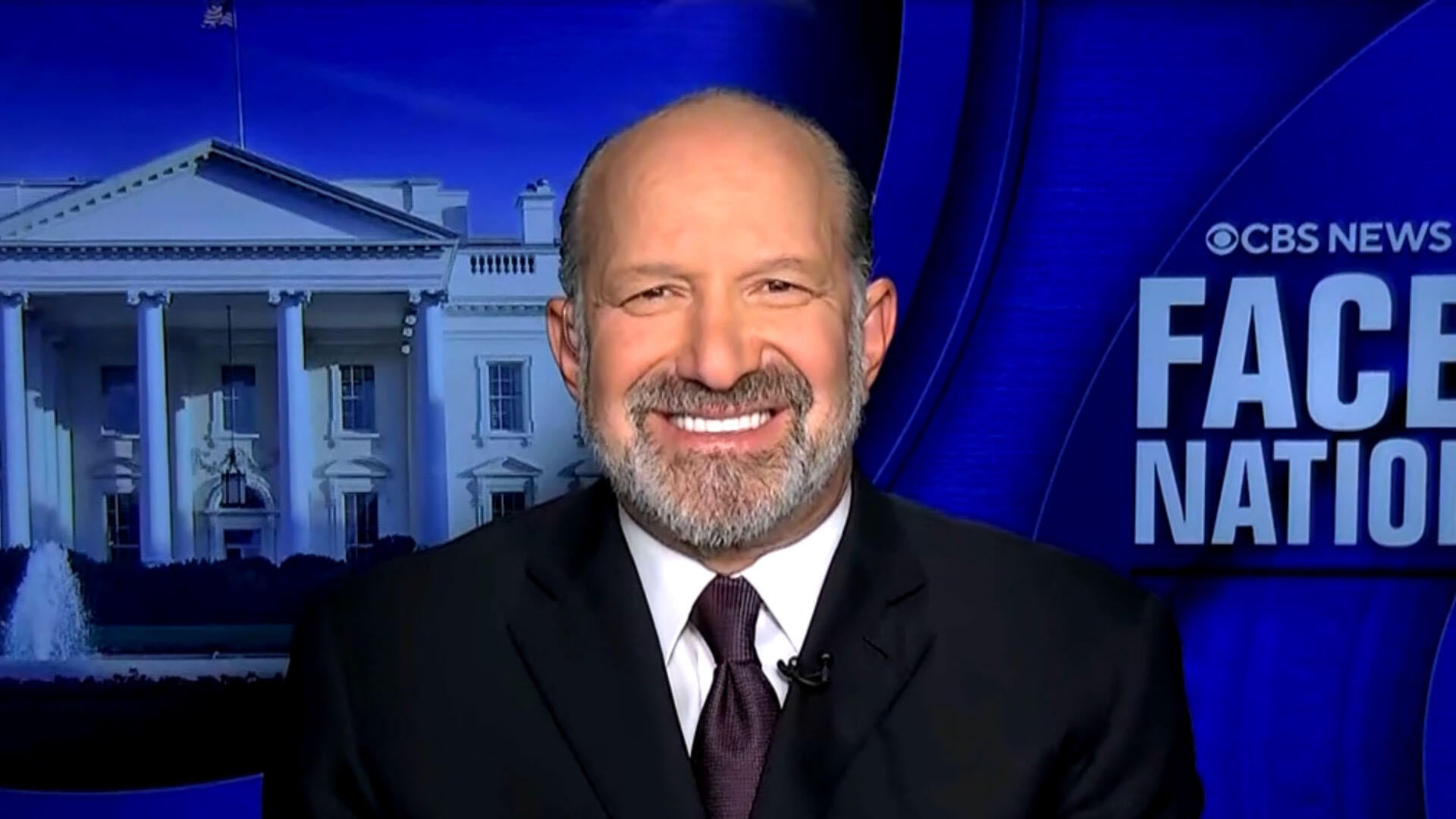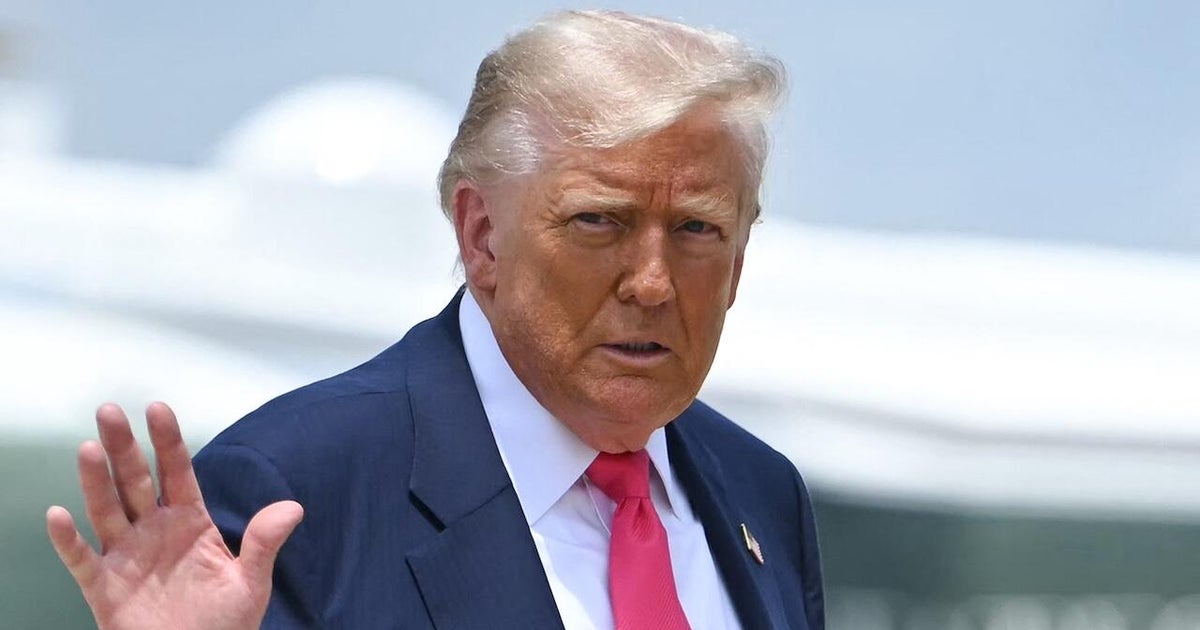Lutnick on Aug. 1 tariff deadline

Commerce Secretary Howard Lutnick expressed confidence Sunday that the Trump administration will cut trade deals with key U.S. trading partners in the coming weeks — before steep tariffs kick in for dozens of countries.
"The next two weeks are going to be weeks for the record books. President Trump is going to deliver for the American people," Lutnick said on "Face the Nation with Margaret Brennan."
The president sent letters this month to 25 trading partners — including Canada, Mexico and the European Union — telling them to expect higher tariffs starting Aug. 1 unless they make a deal. The administration has pressed countries for months to negotiate trade agreements with the U.S., but only a handful of deals have been formally announced so far — and CBS News polling released Sunday showed 61% of Americans believe the administration is too focused on tariffs.
But Lutnick said the American people are "going to love the deals that President Trump and I are doing," and argued the president's strategy of sending tariff letters has sparked progress.
"That's gotten these countries to the table, and they are going to open their markets or they're going to pay the tariff," the commerce secretary told CBS News.
He said imports from smaller countries will likely continue to face a baseline 10% tariff, while larger countries would face higher tariffs.
One of the most closely watched negotiations is with the European Union. The U.S. traded $975.9 billion worth of goods with the 27-nation bloc last year — more than any single country. Mr. Trump has threatened 30% tariffs on its exports to the U.S. starting next month, up from the 20% tariffs he briefly imposed on Europe in April.
European officials say they hope to reach an agreement with Mr. Trump, but if there's no deal, they have threatened to impose a set of retaliatory tariffs on American goods on Aug. 1.
Lutnick told CBS News, "I am confident we'll get a deal done," noting that he spoke with a top European trade negotiator earlier Sunday morning.
The U.S.' two largest non-EU trading partners — Canada and Mexico — have also been told to expect tariffs next month of 35% and 30%, respectively, up from 25% imposed near the start of Mr. Trump's term. The president has tied their tariff rates to fentanyl trafficking and illegal immigration, which both countries say they have made progress on, though very little fentanyl is currently trafficked across the U.S.-Canada border.
Mr. Trump's message to his northern neighbor, Lutnick said, is that tariffs will remain in place on Canadian imports if the country doesn't "stop this fentanyl and close the border."
But goods that are covered by the U.S.-Mexico-Canada Trade Agreement — which was struck during Mr. Trump's first term — are not included in these tariffs, exempting most goods that cross the border, Lutnick noted.
Aug. 1 is a "hard deadline" for tariffs, Lutnick says
Mr. Trump penned this month's tariff letters after threatening a similar slate of tariffs on dozens of trading partners on "Liberation Day" in early April. Most of those tariffs were halted for 90 days to give the administration more time to negotiate trade deals — and before that pause expired earlier this month, the president sent letters naming Aug. 1 as a new deadline.
Lutnick called Aug. 1 a "hard deadline," and said the U.S. is planning to start collecting higher tariffs on imports at the start of next month — echoing Mr. Trump's pledge earlier this month that "no extensions will be granted."
But "nothing stops countries from talking to us after Aug. 1st," Lutnick added.
Mr. Trump has stood by his trade strategy, arguing tariffs will boost American manufacturing, shrink trade deficits and correct unfair trade practices by other countries.
But some of the tariff moves have spooked financial markets, and economists warn steeper import duties will lead to higher consumer prices and slower economic growth. Federal Reserve Chair Jerome Powell has said the central bank has held off on cutting interest rates relatively high in part because it is watching to see whether tariffs will impact inflation.
Consumer prices rose 2.7% year-over-year last month, up from 2.4% a month prior.
Lutnick said Sunday he's not worried about tariffs leading to higher consumer prices, telling Brennan, "I think you're going to see inflation stay right where it is." He said Americans can expect "shockingly low" prices. He also argued that tariffs will benefit U.S. manufacturers.
"The idea that these importers are more important than the people who employ Americans, I think it's just [the] wrong way of thinking about it," Lutnick said.
Lutnick accuses Jerome Powell of "torturing America"
Lutnick also took a shot at Powell, joining Mr. Trump's attacks on the central bank chair.
The Federal Reserve has chosen to leave interest rates steady so far this year, but Mr. Trump has lobbied the Fed to reduce rates instead. Rate cuts could boost economic growth and make it cheaper for Americans to borrow money, but at the risk of causing inflation to spike.
The Fed's interest rate targets are set by a 12-member committee led by Powell, so he cannot unilaterally make decisions about monetary policy. The board's most recent decision not to cut interest rates in June was unanimous.
CBS News reported last week that Mr. Trump privately asked GOP lawmakers whether he should fire Powell — a legally untested move that could rattle markets. The president later said he's unlikely to try to fire the Fed chair unless there's "fraud," seemingly referring to a controversy over an office renovation project that Mr. Trump claims Powell has mismanaged.
Lutnick did not comment on whether Powell is under threat, saying it's Mr. Trump's decision. But he attacked Powell over interest rates, saying the Fed chair is "doing the worst job."
"It's just wrong. I don't know why he's torturing America this way," Lutnick said.
Joe Walsh is a senior editor for digital politics at CBS News. Joe previously covered breaking news for Forbes and local news in Boston.


















































